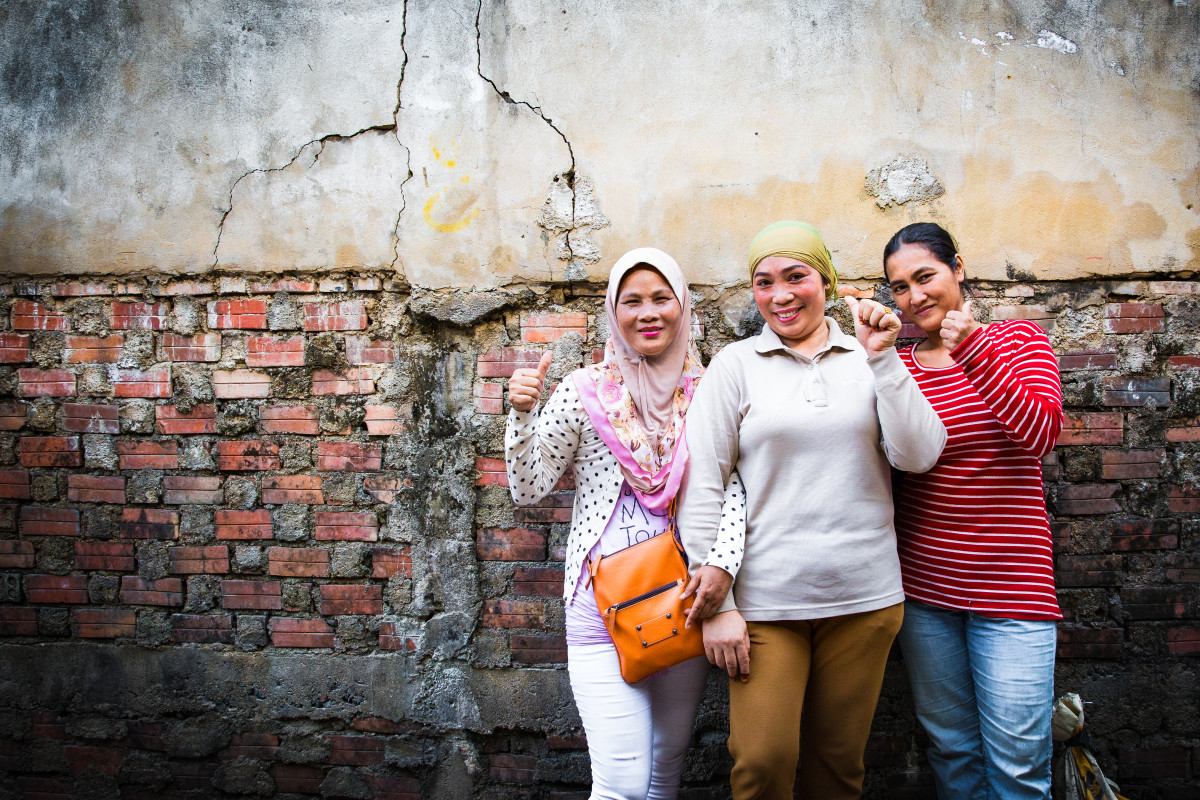ROS, MAAN AND SEN - THE THREE WOMEN FIGHTING AGAINST WASTE IN CAMBODIA
Published: Jun 6, 2018 Reading time: 3 minutes Share: Share an article“We care about our community. We ask everyone to love and take care of it because the community does not belong to individuals – it belongs to all of us.” Those are the words of Sen, Ros and Maan - three women living in Kor Village in Chrang Chamres II Commune, a predominantly Islamic community nestled between a busy highway and the Tonle Sap riverside in northern Phnom Penh. They sit on three chairs in the streets of their bright and vibrant community, laughing as they finish each other’s sentences.

Before PIN and partners Sahmakum Teang Tnaut (STT) and Urban Poor Women Development (UPWD) rolled out the second phase of the Human Rights Based Spatial Planning (HRBSP II) project, the area suffered from poor sanitation and a polluted environment. Most residents of Chrang Chamres II lacked access to toilets, its narrow streets would stay cluttered with organic and plastic rubbish with no waste management system in place and the Tonle Sap river, with its recurring 6-month flooding, would exacerbate serious health and sanitation issues for residents.
Sen, Ros and Maan are longtime residents of Chrang Chamres II and love their community. So when they learned that a root cause of child sickness was inadequate sanitation, they wanted to do something about it. The HRBSP II project supports Chrang Chamres II with a variety of activities, such as community organizing, which includes the establishing of committees and roles that oversee community maintenance and community participation. When Sen, Ros and Maan heard a waste management committee was forming in 2016, they were excited to join and lead efforts to clean up their community.
Since then, they spend three evenings each week together, collecting waste in the streets of Chrang Chamres II and bringing it to collection points on the highway for appropriate disposal. While doing so, they educate neighbors on the benefits of positive waste management practices and encourage them to use the bins made available by the project. They also lead clean-up campaigns with other members of the committee to raise awareness on why it is important to manage waste effectively.
“It is tiring but we see progress,” says Maan. “The community is cleaner, less people are getting sick, and it is nice that children can play on the streets.”
Fast forward one and a half years and the streets of Chrang Chamres II look completely different. Children are playing with each other on concrete roads instead of piles of rubbish. Black waste bins containing garbage sit on street corners ready for collection by the municipal waste authority. Meanwhile, the project oversaw the installation of concrete electricity poles that have replaced their dangerous wooden predecessors, solar powered street lighting and communal latrines placed near homes.
When asked what message she had for young people and residents of Chrang Chamres II, Maan made a simple request: “Please love the community. We only have one and it is for all of us.”
The Human Rights Based Spatial Planning II (HRBSP II) project is funded by the Czech Development Agency and the European Union, and implemented by People In Need (PIN), Sahmakum Teang Tnaut (STT) and Urban Poor Women Development (UPWD). The project aims to strengthen tenure security and the right to adequate housing of poor urban dwellers in Phnom Penh.
